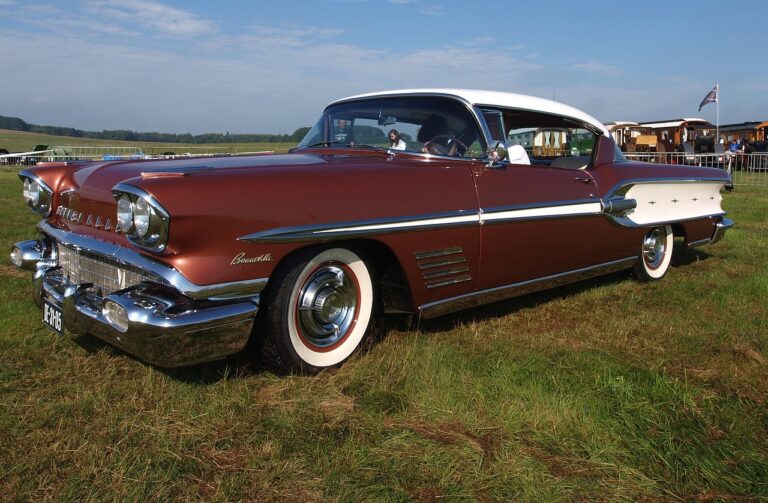Exploring the Use of Advanced Materials in Exhaust System Thermal Barrier Components
99exch.com login, laser247. com, yolo247 login:Exploring the Use of Advanced Materials in Exhaust System Thermal Barrier Components
Are you familiar with the role of thermal barrier components in an exhaust system? These elements play a crucial role in managing the high temperatures generated in the exhaust system of a vehicle. By using advanced materials in these components, manufacturers can enhance their performance, durability, and efficiency. In this article, we will delve into the benefits and applications of advanced materials in exhaust system thermal barrier components.
Understanding the Importance of Thermal Barrier Components
Before we discuss the use of advanced materials in thermal barrier components, let’s first understand their importance in an exhaust system. The primary role of these components is to insulate and protect other parts of the exhaust system from the extreme heat generated during combustion.
By preventing heat transfer to surrounding components, thermal barrier components help improve the overall efficiency and performance of the exhaust system. They also contribute to reducing emissions and enhancing fuel efficiency. Without proper insulation, components such as catalytic converters, mufflers, and exhaust pipes would be susceptible to damage and degradation due to high temperatures.
Benefits of Advanced Materials in Thermal Barrier Components
The use of advanced materials in thermal barrier components offers several key benefits:
1. Improved Thermal Insulation: Advanced materials such as ceramic coatings, metallic thermal barriers, and insulating blankets provide superior heat resistance compared to traditional materials. This results in better insulation and protection for surrounding components.
2. Enhanced Durability: Advanced materials are designed to withstand high temperatures and thermal cycling, ensuring longevity and reliability in exhaust system applications. This leads to reduced maintenance and replacement costs over time.
3. Increased Performance: By effectively managing heat transfer, advanced materials can enhance the performance of the exhaust system. This results in improved engine efficiency, reduced emissions, and better overall vehicle performance.
4. Lighter Weight: Many advanced materials used in thermal barrier components are lightweight, which can help reduce the overall weight of the exhaust system. This can lead to improved fuel efficiency and vehicle dynamics.
Applications of Advanced Materials in Exhaust System Thermal Barrier Components
Advanced materials are utilized in a variety of thermal barrier components in the exhaust system, including:
1. Exhaust Manifold Insulation: High-temperature insulation materials are used to protect exhaust manifolds from heat exposure, preventing heat loss and ensuring efficient operation.
2. Catalytic Converter Shields: Ceramic coatings and metallic thermal barriers are applied to catalytic converters to protect them from excessive heat, prolonging their lifespan and enhancing performance.
3. Muffler Insulation: Insulating blankets and heat shields are commonly used in mufflers to reduce noise levels and prevent heat damage to surrounding components.
4. Exhaust Pipe Coatings: Ceramic coatings and metal thermal barriers are applied to exhaust pipes to minimize heat loss and improve exhaust flow, enhancing engine performance.
5. Turbocharger Heat Shields: Advanced materials are used to create heat shields for turbochargers, protecting them from heat-related damage and ensuring optimal performance.
Incorporating advanced materials in these components allows manufacturers to optimize the performance, efficiency, and longevity of the exhaust system, ultimately benefiting the vehicle’s overall operation.
FAQs
Q: What are the most common advanced materials used in exhaust system thermal barrier components?
A: Some of the most common advanced materials include ceramic coatings, metallic thermal barriers, insulating blankets, and heat-resistant polymers.
Q: How do advanced materials improve the performance of the exhaust system?
A: Advanced materials provide better thermal insulation, durability, and lightweight properties, resulting in improved overall performance, efficiency, and longevity of the exhaust system.
Q: Are there any drawbacks to using advanced materials in thermal barrier components?
A: While advanced materials offer numerous benefits, they can be more expensive than traditional materials. However, the long-term performance and durability benefits often outweigh the initial cost.
In conclusion, the use of advanced materials in exhaust system thermal barrier components plays a vital role in enhancing performance, efficiency, and durability. By investing in these advanced technologies, manufacturers can optimize the operation of the exhaust system and improve the overall performance of vehicles. Whether it’s improving thermal insulation, enhancing durability, or increasing efficiency, advanced materials are paving the way for a more sustainable and efficient automotive industry.







